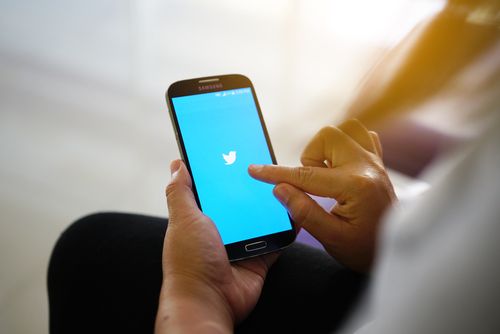Leading human rights organisation Amnesty International expose how Twitter is failing to respect women's rights
Amnesty International released a new report on 21 March 2018, marking the 12 year anniversary of Twitter’s very first tweet. The report, a combination of 16 months research, over 80 interviews with women, and a survey of more than 1,000 British women, highlights key failings of the (arguably) world’s largest social media platform.
Rape threats, death threats, racist and sexist abuse have been silencing women for years. Today is Twitter’s 12th birthday 🎂 yet this abuse is still what’s happening on #ToxicTwitter, @Jack - https://t.co/wqjmBJ2Spf
— Amnesty UK (@AmnestyUK) 21 March 2018
Less than 9% of British women believe Twitter is doing enough to stop violence and abuse against women. An astonishing 78% expressed that they didn’t think Twitter is a place where they can share their opinions without receiving violence or abuse.
Amnesty International reports that women face a barrage of threats of violence and abuse every day. From sexist comments and racism, to death and rape threats, Amnesty International urges Twitter users to ‘Tell Twitter’s CEO Jack Dorsey that he must clean up #ToxicTwitter, making sure it’s a safe space for women by enforcing its rules on hateful conduct and abuse’.
Operating in over 40 languages, since its’ launch in 2006, Twitter has become one of the world’s largest online social media platforms, with a community of over 330 million monthly active users sending 500 million tweets each day. Around 20 million brits use Twitter, with 45% of UK adults signed up to the site in a professional or personal capacity.
Scottish political leaders receive horrific violent and abusive tweets every day. Watch @NicolaSturgeon, @RuthDavidsonMSP & @KezDugdale speak about the abuse they receive on #ToxicTwitterhttps://t.co/DdBbR9djephttps://t.co/zAbUjZJoLB pic.twitter.com/J9lAGd1aMf
— Amnesty Scotland (@AmnestyScotland) 21 March 2018
Twitter may have started out with a simple, powerful idea: to let people tell their stories about what is happening in the world. When did users begin to see that right to share our stories, views and opinions, as a chance to attack and threaten others?
Hey @Jack, this is what’s really happening to @UKLabour councillor @seyiakiwowo on your #ToxicTwitter **trigger warning: abusive content** → https://t.co/R6RB1Nrmeh pic.twitter.com/WwlXYZCdQQ
— Amnesty UK (@AmnestyUK) 21 March 2018
Women are routinely leaving Twitter due to the toxic environment and personal attacks tey receive. This report comes just weeks after Munroe Bergdof stepped down from the Labour LGBT+ panel due to ‘relentless online about’ and ‘endless attacks’ on her character through Twitter and social media. Earlier the same month, food poverty campaigner Jack Monroe, who first came into the spotlight in 2012 as a single mum, announced they would leave Twitter having ‘spent the last two years attempting to gently (and sometimes, less gently) defend women’s rights AND trans rights (caveat - trans women are women’.
Very sad to write this, but it's for the best. pic.twitter.com/fr5xXPtJ19
— a girl called jack |🍴📚 (@BootstrapCook) 1 March 2018
The leading human rights campaigners went on to report threats of real physical danger women have experienced from their use of Twitter. Pamela Merrit, reproductive rights activist, said ‘After five years of online harassment coupled with offline harrassment, I have basically reconciled with the fact that I’m prepared to die for the work I do. That might happen. If you get 200 death threats, it only takes one person who really wants to kill you.’
Over 50% of women polled by the organisation who had been harassed or abused online reported experiencing anxiety, stress, or panic attacks as a result. More than a third felt their physical safety was at risk.
Twitter policies explicitly state that hateful conduct and abuse will not be tolerated, however users report the site often fails to even respond to reports of violence and abuse. Amnesty International highlights the mistrust and lack of confidence this can create in the company’s reporting process, ultimately which could lead to a decrease in women reporting these instances, further allowing violence and abuse to go unchecked.
If you are experiencing anxiety, panic attacks, or increased stress as a result of online harrassment, visit Counselling Directory to find suggestions and advice that can help.


Comments